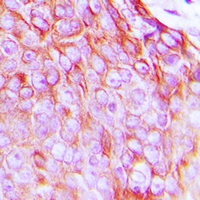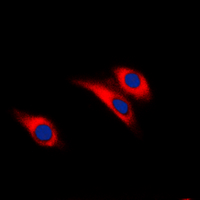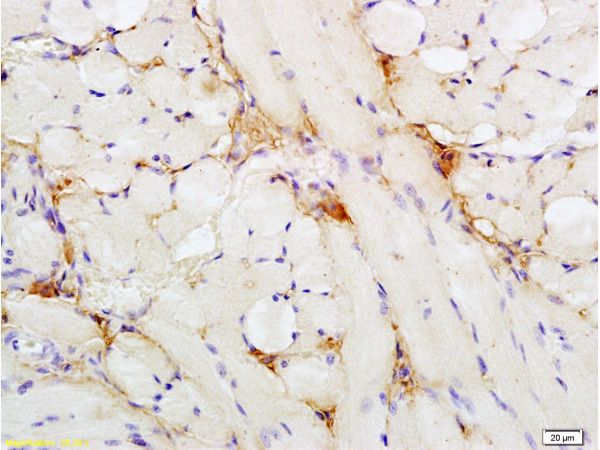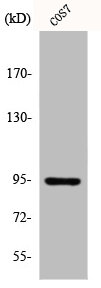
IHC-P analysis of formalin fixed human breast cancer tissue section using GTX55015 Insulin Receptor beta (phospho Tyr1322) antibody. Antigen retrieval : Heat mediated antigen retrieval with sodium citrate buffer (pH 6.0)
Insulin Receptor beta (phospho Tyr1322) antibody
GTX55015
ApplicationsImmunoFluorescence, Western Blot, ImmunoCytoChemistry, ImmunoHistoChemistry, ImmunoHistoChemistry Paraffin
Product group Antibodies
ReactivityHuman
TargetINSR
Overview
- SupplierGeneTex
- Product NameInsulin Receptor beta (phospho Tyr1322) antibody
- Delivery Days Customer9
- Application Supplier NoteWB: 1:500 - 1:1000. ICC/IF: 1:100 - 1:500. IHC-P: 1:100 - 1:200. *Optimal dilutions/concentrations should be determined by the researcher.Not tested in other applications.
- ApplicationsImmunoFluorescence, Western Blot, ImmunoCytoChemistry, ImmunoHistoChemistry, ImmunoHistoChemistry Paraffin
- CertificationResearch Use Only
- ClonalityPolyclonal
- ConjugateUnconjugated
- Gene ID3643
- Target nameINSR
- Target descriptioninsulin receptor
- Target synonymsCD220, HHF5, insulin receptor, IR
- HostRabbit
- IsotypeIgG
- Protein IDP06213
- Protein NameInsulin receptor
- Scientific DescriptionThis gene encodes a member of the receptor tyrosine kinase family of proteins. The encoded preproprotein is proteolytically processed to generate alpha and beta subunits that form a heterotetrameric receptor. Binding of insulin or other ligands to this receptor activates the insulin signaling pathway, which regulates glucose uptake and release, as well as the synthesis and storage of carbohydrates, lipids and protein. Mutations in this gene underlie the inherited severe insulin resistance syndromes including type A insulin resistance syndrome, Donohue syndrome and Rabson-Mendenhall syndrome. Alternative splicing results in multiple transcript variants. [provided by RefSeq, Oct 2015]
- ReactivityHuman
- Storage Instruction-20°C or -80°C,2°C to 8°C
- UNSPSC12352203








![IHC-P analysis of human placenta tissue section using GTX02652 Insulin Receptor alpha antibody [INSR/2277R].](https://www.genetex.com/upload/website/prouct_img/normal/GTX02652/GTX02652_20210319_IHC-P_w_23053122_122.webp)
